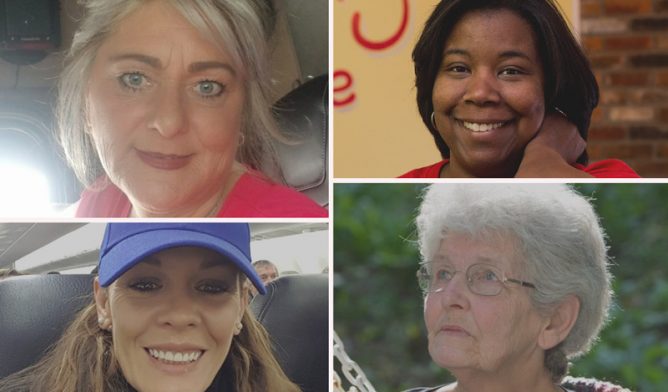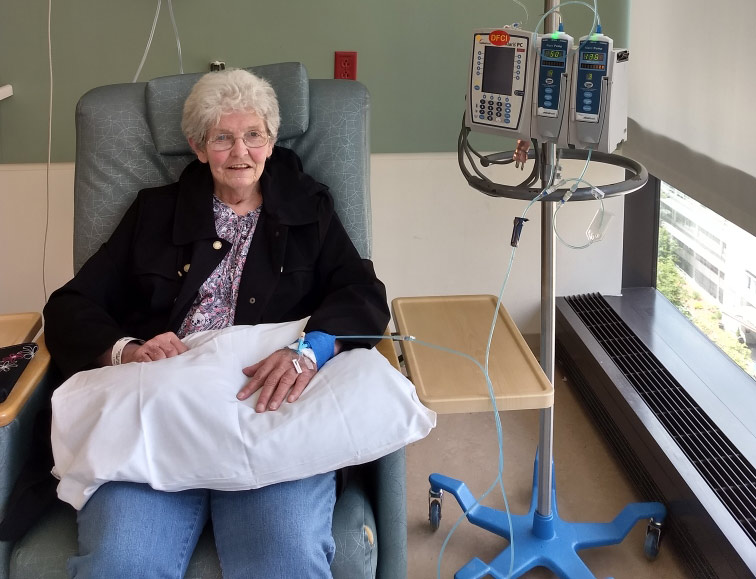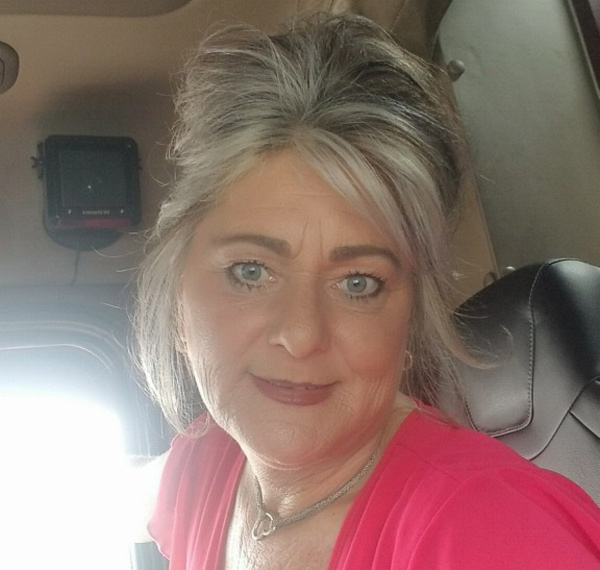Mesothelioma Survivors Face Critical COVID-19 Challenges
Treatment & DoctorsWritten by Fran Mannino • Edited By Walter Pacheco
Asbestos.com is the nation’s most trusted mesothelioma resource
The Mesothelioma Center at Asbestos.com has provided patients and their loved ones the most updated and reliable information on mesothelioma and asbestos exposure since 2006.
Our team of Patient Advocates includes a medical doctor, a registered nurse, health services administrators, veterans, VA-accredited Claims Agents, an oncology patient navigator and hospice care expert. Their combined expertise means we help any mesothelioma patient or loved one through every step of their cancer journey.
More than 30 contributors, including mesothelioma doctors, survivors, health care professionals and other experts, have peer-reviewed our website and written unique research-driven articles to ensure you get the highest-quality medical and health information.
About The Mesothelioma Center at Asbestos.com
- Assisting mesothelioma patients and their loved ones since 2006.
- Helps more than 50% of mesothelioma patients diagnosed annually in the U.S.
- A+ rating from the Better Business Bureau.
- 5-star reviewed mesothelioma and support organization.
Testimonials
My family has only the highest compliment for the assistance and support that we received from The Mesothelioma Center. This is a staff of compassionate and knowledgeable individuals who respect what your family is experiencing and who go the extra mile to make an unfortunate diagnosis less stressful. Information and assistance were provided by The Mesothelioma Center at no cost to our family.LashawnMesothelioma patient’s daughter
How to Cite Asbestos.com’s Article
APA
Mannino, F. (2023, June 1). Mesothelioma Survivors Face Critical COVID-19 Challenges. Asbestos.com. Retrieved April 19, 2024, from https://www.asbestos.com/news/2020/03/26/covid-19-cancer-challenges/
MLA
Mannino, Fran. "Mesothelioma Survivors Face Critical COVID-19 Challenges." Asbestos.com, 1 Jun 2023, https://www.asbestos.com/news/2020/03/26/covid-19-cancer-challenges/.
Chicago
Mannino, Fran. "Mesothelioma Survivors Face Critical COVID-19 Challenges." Asbestos.com. Last modified June 1, 2023. https://www.asbestos.com/news/2020/03/26/covid-19-cancer-challenges/.

As the U.S. comes to grips with the challenges of the COVID-19 pandemic, mesothelioma cancer survivors face additional hurdles, including difficulty receiving care.
Patients currently undergoing treatment for cancer and those who are immunocompromised are at greater risk of serious health issues if they contract COVID-19, according to the Centers for Disease Control and Prevention.
“Cancer patients are a high-risk group and should be extra vigilant in terms of isolation precautions. They should follow the medical authorities’ instructions,” Dr. Ory Wiesel, a thoracic surgeon at Maimonides Medical Center in New York, told The Mesothelioma Center at Asbestos.com. “They should be in touch with their medical and radiation oncologists for treatment plans and try to minimize unnecessary visits as much as possible. However, they should keep getting treatment.”
Wiesel stressed that patients should be advised by their doctors during this period.
Treatment Challenges Facing Mesothelioma Patients
With hospitals overwhelmed with the influx of COVID-19 patients, scheduling issues are becoming a concern for mesothelioma patients.
“I already had to cancel one of my appointments at Dana-Farber in Boston because it’s not worth the risk of me going down there and possibly getting this virus,” said Emily Ward, a seven-year pleural mesothelioma survivor.
Ward, who was taking the immunotherapy drug Keytruda (pembrolizumab), suspended that treatment on March 3 and began a new chemotherapy drug to treat her second mesothelioma recurrence.
Side effects from the chemo were too harsh, and she decided to not go through with the next infusion, which was scheduled for March 24. Ward has self-isolated in her home in rural Maine for the past three weeks.
“In light of everything going on, I had to weigh the risks of going to Boston and being exposed to the coronavirus versus possibly getting back on Keytruda,” she said. “This [COVID-19] is putting pressure on cancer centers to ensure that in-person appointments are absolutely necessary.”

Peritoneal mesothelioma survivor Raeleen Minchuk is sheltering in place at her home in Canada. She said she is extremely worried about the COVID-19 virus.
“I literally have no immune system due to the fact I was stage 4 when diagnosed in September 2014. The surgeries I’ve had have left me missing essentially 75% of my abdominal cavity and no immune system,” she said. “I have been at home now for four weeks and went to get my medications today. The pharmacy brought them out to my vehicle so I didn’t have to enter.”
Mesothelioma Survivor Stays Safe on the Road
Peritoneal mesothelioma survivor Trina West Reif, a Michigan resident, is weathering the COVID-19 pandemic on the road.
West Reif married her husband Steve, an over-the-road truck driver, in 2018. She usually rides with him during the winter months. Currently, the couple and their two cats are in a semi headed from Texas to Colorado.
“I got in the truck in the middle of February, when this all started with COVID. As the weeks kept going, it was total chaos,” she said. “It’s very scary out here. I just stay in the truck and I just keeping washing my hands.”

The 19-year mesothelioma survivor said her stress levels these days are high.
“I told my husband, I have no spleen, I have no immune system. If I get sick, I go completely down,” she said.
West Reif’s family would like her to return home to Michigan, but she said as long as they have work, she will stay the course. Still, she is being extra vigilant in an effort to avoid the virus, especially with what she’s gone through over the years.
“Being so sick like that, honestly, I never, ever, ever want to feel that bad again,” she said. “But I don’t dwell on it. I’m not that girl that worries about it. I just go on with a positive attitude.”
West Reif is part of a mesothelioma survivor community that shares advice and support. It has become particularly important to her in the days of COVID-19.
“So many of us meso friends in that group are communicating and keeping each other going. We have our own little community,” she said. “If somebody has a symptom or anxiety, we put something out there and everybody comments on it.”

Louisiana Cancer Survivor Denied COVID-19 Test
Kasie Coleman is a peritoneal mesothelioma survivor living in Louisiana, a state that has surpassed the 2,300 mark in diagnosed cases of COVID-19 as of Thursday afternoon.
She is worried about contracting the virus but has remained optimistic.
“I have survived so much already, so I’m not allowing myself to freak out. What’s COVID-19 when you’ve had two HIPEC procedures, right?” Coleman said. “I am taking all of the preventive measures that I can under the circumstances. I pray more, that’s for sure, and I stay at home when I don’t have to work.”
Coleman is worried that a co-worker might have contracted the virus. She said in spite of her history with cancer, her physician said she cannot be tested for COVID-19 without having typical symptoms such as fever, dry cough and trouble breathing.
“My doctor will not give me a referral until I exhibit one, if not all, of the symptoms, even with my history,” Coleman said. “She is following CDC guidelines.”
Wiesel said COVID-19 virus testing had its problems early on, but now it is becoming more widespread.
“The guidelines for testing are changing daily, and one should follow his or her PMD’s [primary medical doctor] instructions,” he said. “Obviously high fevers, respiratory distress and other virus-related symptoms are indications to refer to the ED [emergency department].”
Isolation can become an issue during the pandemic, and Coleman has advice for anyone sheltering at home.
“Enjoy the time off,” she said. “As a cancer patient, my options were life or death. Therefore, a few weeks at home with family, food and electricity isn’t such a bad deal.”
Precautions for Cancer Patients Amid the COVID-19 Outbreak
According to the American Society of Clinical Oncology, there are steps cancer patients can take to ensure they stay safe during the COVID-19 outbreak.
“Be sure to have enough essential medications, both prescription and over-the-counter, to last for at least one month,” the recommendations read. “Create or update an emergency contact list that includes family, friends, neighbors and community or other resources who may be able to provide information or assistance to you if you need it.”
The organization also suggests patients discuss with their oncologists the benefits and risks of postponing treatment.
“If you are not scheduled for cancer treatment but are scheduled for an appointment with your oncologist, it may be possible for the doctor to conduct the visit using videoconferencing or telemedicine,” it said. “Be sure to check with your cancer care team to see if this is recommended for you.”
Dr. Len Lichtenfeld, deputy chief medical officer for the American Cancer Society, said in a statement that, right now, this isn’t “life as usual.”
“It will require patience on everyone’s part as we go through this pandemic,” Lichtenfeld said. “It is important to maintain contact with your cancer care team to determine the best course of action for you.”







